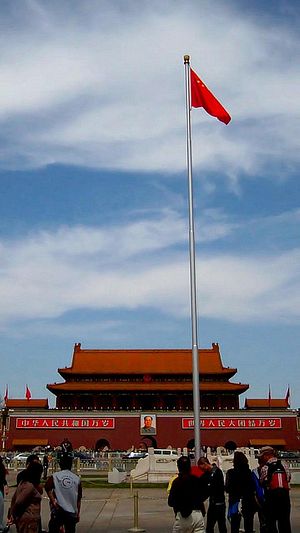If the Chinese authorities want to promote something, they’ll simply make a law for it. As China is intensely promoting patriotism nationwide, a new law on the national anthem has been drafted. According to Xinhua, China’s top legislature is now (starting June 22) “deliberating on” the draft law. In actuality, this means the draft law will be approved very soon.
The draft law on the national anthem is very detailed and comprehensive, covering the occasions when the song should be played, rules of etiquette for us and the consequences of violation.
The draft law says that the anthem, the “March of the Volunteers”:
…should not be performed at funerals or other improper events nor should it be used in advertisements or as background music at public places… Anyone found to have maliciously modified the lyrics or performed it in a distorted or disrespectful way could face up to 15 days in detention.
In order to reflect the “respect and maintenance of the national symbol,” the draft says:
When singing the national anthem, the people in presence should be stand still and in a solemn manner. When the song is played together with a national flag raising ceremony, the people in presence should face toward the national flag; people in military uniforms should salute to the flag with hands, while the others should salute with eyes.
In addition, the draft requires that the national anthem be included in the first-grade textbooks of all elementary schools, and all elementary schools and middle schools should regard singing the song as an important part of patriotism education and have their students learn to sing the song.
Interestingly, even the most active promoters of the law didn’t expect the draft to be done so soon.
Yu Hai, the former leader of Military Band of the Chinese People’s Liberation Army, has been advocating for passing the law on the national anthem for ten years. He was very excited to learn the news.
“The most important part of the law is to promote patriotism. Make it a basic requirement for everyone to sing the national anthem and to love the national anthem.” Yu Hai said to a Chinese newspaper, although he also agreed that the law should not be “too detailed.”
































